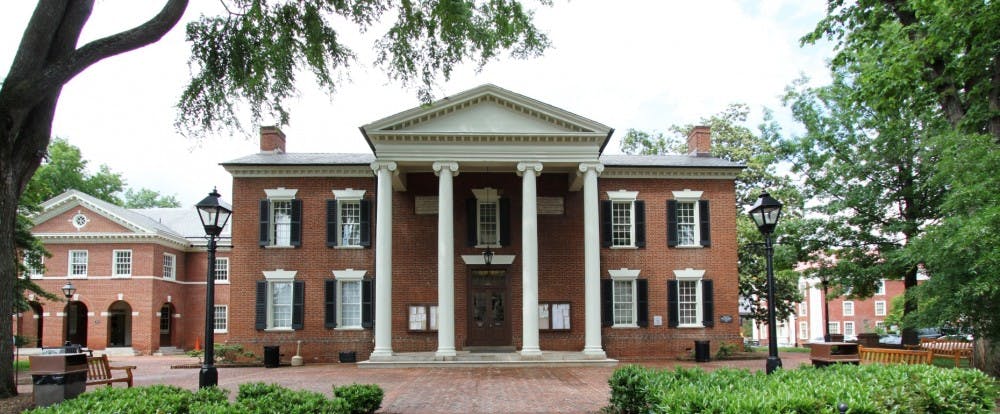Jason Kessler, a local white nationalist and organizer of the deadly Unite the Right rally last August, had the perjury charge he was facing dismissed in Albemarle Circuit Court Tuesday.
Perjury charges are typically filed against an individual when a legal oath has been voluntarily violated by swearing to a false statement. Kessler had previously claimed under oath he was assaulted on the Charlottesville Downtown Mall while collecting signatures to recall City Councilor Wes Bellamy. Prosecutors, however, have pointed to video evidence of the incident to allege that Kessler lied under oath.
Judge Cheryl Higgins ruled that the prosecution — the Commonwealth of Virginia represented by the elected Commonwealth’s Attorney Robert Tracci — failed to prove that Kessler made his statements within the court’s jurisdiction.
Charlottesville attorney Timothy Read said this is a legal concept widely known by even junior lawyers.
“Mr. Tracci failed to elicit evidence that would've shown that this complaint was sworn out in the County of Albemarle,” Read said. “The fact that it's true doesn't mean that it was proven in court … When he had the magistrate on the stand, he could've said, 'Where did this happen?' and the man would've said, ‘At my office in Albemarle County.”
A grand jury indicted Kessler of felonious perjury Oct. 2 for dishonestly alleging he had been assaulted. Under Virginia law, perjury is a Class 5 felony, carrying a sentence between one and ten years in prison. If the judge or jury decided to treat a Class 5 felony as a misdemeanor, the charge holds a maximum of one year in prison and, at most, a $2,500 fine.
Tracci told the jury in opening arguments that he found the case to be simple.
“The statements were not true and not accurate,” Tracci said. “They were false and the defendant knew they were false. That’s perjury.”
Defense attorney Michael Hallahan initially said that Kessler sees his statements as true, while the Virginia statute for perjury requires knowingly making false statements.
“People, when they are in the heat of the moment, may not perceive each thing as it was,” Hallahan said.
Perjury is normally a difficult charge to prove, Tracci noted, but the prosecution had a key piece of evidence — security footage from the incident. With the aid of the Virginia Department of Forensic Science, Tracci was able to enhance the video and play it for the jury.
But, even with the video evidence, Tracci failed to extract the location of Kessler’s signed complaint, which brought the case to an abrupt end.
“I am disappointed by the court’s ruling in this case, and we are examining potential steps at this time,” Tracci wrote in an email statement to local media outlets. “This defendant is entitled to a presumption of innocence and the same due process under law accorded to all other defendants.”
Despite Kessler’s local notoriety as an activist for Charlottesville’s Confederate statues and failed efforts to remove Bellamy from office, Higgins forbade witnesses and counsel in the trial from discussing the events of Aug. 11 and 12, the statues or the topic of Kessler’s petition.
The charge began with a criminal complaint filed Jan. 22, 2017 by Kessler to an Albemarle County magistrate, stating Charlottesville resident James Taylor had assaulted him during a combative exchange over the petition. The case was quickly dropped when the video footage revealed Kessler punched Taylor — Taylor had neither initiated nor reciprocated. Kessler then plead guilty to a misdemeanor assault charge in April 2017 and was sentenced to 30 days in prison — all of which were suspended — and to 50 hours of community service.
Kessler tried in January to move the case out of Albemarle County, claiming the City’s residents held an unfair bias against him for his role in organizing the Unite the Right rally, citing local media coverage. The motion filed by his attorney says Kessler would like the trial “as far away as possible to a county with a similar demographic of potential jurors, so that would result in this defendant having a better chance at receiving a fair trial.” Higgins denied the request.
During the juror selection process, Hallahan requested that jurors be chosen only from the pool of potential panelists who did not know of Kessler. Higgins denied this request as well.
The trial cannot be repeated due to Kessler’s Fifth Amendment protection from double jeopardy.
Kessler is also currently involved in a number of ongoing local legal disputes. The City of Charlottesville, along with a number of other plaintiffs, joined a class action lawsuit filed by Georgetown Law Institute for Constitutional Advocacy and Protection against organizers of the Unite the Right rally, including Kessler, in October 2017. The suit aims to prevent the mobilization of white nationalist militia groups in Charlottesville.
Moreover, Kessler filed a federal lawsuit against the City of Charlottesville and City Manager Maurice Jones earlier this month for denying him a permit for a Unite the Right anniversary rally planned for Aug. 11 and 12, 2018. Kessler is seeking injunctive action to force the City to allow the protest, as well as compensatory damages and a judgement that declares the City violated his First and Fourteenth Amendment rights — specifically, his rights to free speech, assembly and petition.







